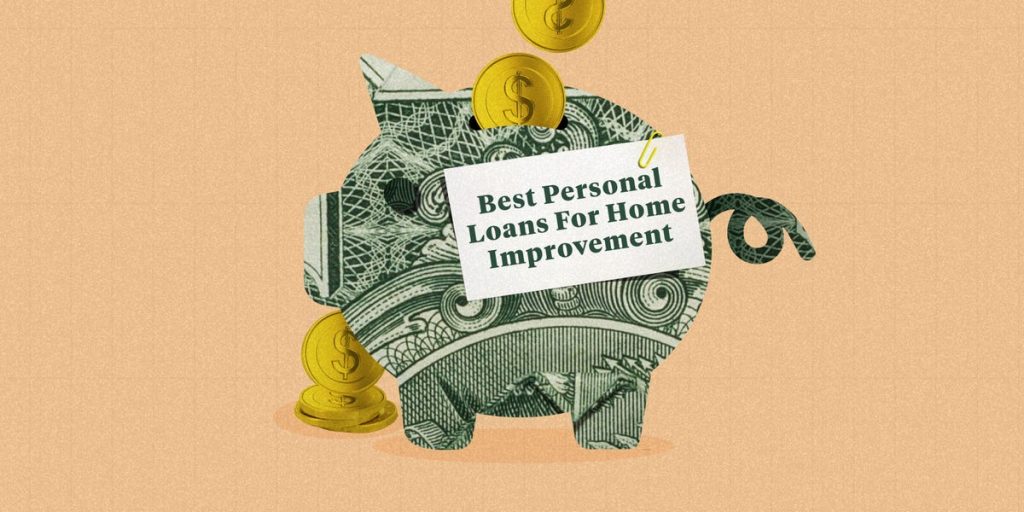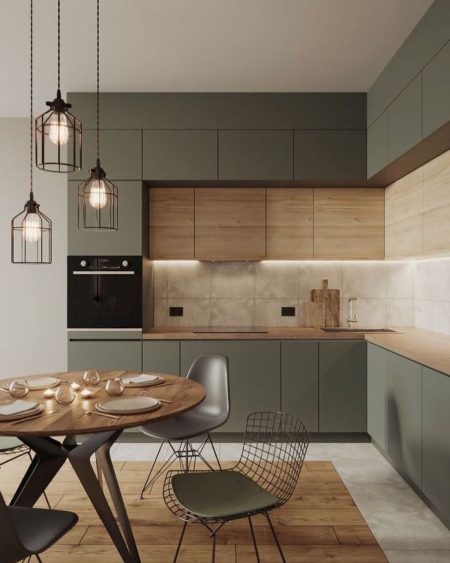Affiliate links for the products on this page are from partners that compensate us (see our advertiser disclosure with our list of partners for more details). However, our opinions are our own. See how we rate personal loans to write unbiased product reviews.
Maybe you have a home improvement project in mind, such as building a deck, remodeling your bathroom, or replacing your roof, but you need money to complete the job. A personal loan could be a good option. A personal loan is a fixed-rate loan, often paid off in monthly installments with a variety of term length options.
Best Home Improvement Loans of 2024 Summary
Compare Personal Loan Rates
Top Home Improvement Loans Comparison
If you want to borrow money to fund renovations, the best home improvement loans can make the process easy and hopefully score you a low interest rates. Most personal loans for home improvement are unsecured, meaning you don’t have to put up any collateral. We chose the best option for payment flexibility, for small loan amounts, for using a co-borrower, and more.
Best Home Improvement Loan for Low Rates
LightStream Personal Loan
LightStream has some of the lowest APRs available. However, the lender has slightly stricter eligibility requirements than some of our other top picks, including several years of credit history, stable income, and few or no payment delinquencies on your credit report.
If you’re looking to borrow a large sum of money, LightStream’s maximum loan amount of $100,000 is on par with SoFi and is significantly more than most of the other lenders on our list.
What to look out for: LightStream is only available to borrowers with good credit. If your credit isn’t in the best shape, you’ll find it hard to qualify.
LightStream Personal Loan Review
Best Home Improvement Loan for Payment Flexibility
SoFi Personal Loan
SoFi has the highest minimum credit score requirement of any lender on our list — you’ll need a credit score of at least 680 for SoFi home renovation loans. SoFi also offers a higher maximum loan amount than most other lenders, allowing you to take out up to $100,000.
What to look out for: High minimum loan amount. To take out a loan with SoFi, you’ll need to borrow at least $5,000, so it isn’t the best option for smaller home improvement projects.
SoFi Personal Loan Review
Best Home Improvement Loan for Easy Qualification
Avant Personal Loan
Avant may be the easiest lender to qualify with on our list. Its minimum credit is just a guideline, not a requirement, but most Avant borrowers have a credit score between 600 and 700. If your credit isn’t in great shape and you aren’t eligible to borrow from companies like Lightstream or SoFi, Avant may be a good choice for you.
The company funds loans for home improvements quickly — if Avant approves your loan by 4:30 p.m. CT Monday through Friday, it often deposits money into your account by the next business day. Avant has great customer service hours, with its phone line open at least 13 hours every day of the week. The lender also has a solid mobile app.
What to watch out for: Low maximum loan limit. You’re only able to borrow up to $35,000 with Avant, which is lower than many other lenders on our list.
Avant Personal Loan Review
Best Home Improvement Loan for Small Loan Amounts
First Tech Personal Loan
First Tech is one of the best options if you’re looking for a small home repair loan for minor work. You can a First Tech personal loan for as little as $500, the smallest amount of any of our top picks. You’ll also avoid the high APRs that come with payday loans. First Tech loans don’t have any application, origination, or annual fees, and there’s no prepayment penalty.
First Tech doesn’t clarify its minimum credit score, so you’ll have to apply with the lender to see if you qualify.
What to watch out for: Membership requirements. Though you need to join First Tech to be eligible to receive a home improvement loan from the credit union, it’s pretty easy to qualify for membership. You can join the Financial Fitness Association for $8 to qualify, and you may already be eligible if you live or work in specific parts of Oregon.
First Tech Personal Loan Review
Best Home Improvement Loan for Brick-and-Mortar Locations
Wells Fargo Personal Loan
Wells Fargo, as one of the oldest and largest banks in the US, offers a wide variety of loan types. Its personal loans offer low interest rates, smaller minimum borrowing amounts, and shorter terms than others. Wells Fargo offers loans between $3,000 to $100,000, for payoff terms as short as 12 months. The bank is the only brick-and-mortar institution on our list as it’s one of few traditional banks to offer personal loans.
What to watch out for: Trustworthiness issues. Wells Fargo currently has an F rating from the Better Business Bureau, non-profit organization focused on consumer protection and trust. The BBB measures companies by evaluating businesses’ responses to consumer complaints, honesty in advertising, and transparency about business practices. The bank has faced several federal penalties for improper customer referrals to lending and insurance products, and security issues associated with creating fake accounts several years ago.
Wells Fargo Personal Loan Review
Best Home Improvement Loans for Co-Borrowers
Prosper Personal Loan
Prosper allows co-borrowers on its personal loans, which is particularly useful if your credit score isn’t in the best shape and you’re worried about qualifying for a home improvement loan. The lender’s minimum and maximum loan amounts are both some of the lowest on our list, so Prosper could be a good option if you need $40,000 or less.
Most loans for home improvements from Prosper are approved within one day. Depending on your bank, it may take one to three business days to receive funds in your bank account.
What to look out for: Origination fees. Prosper will charge an origination fee, which will be deducted from your overall loan proceeds, between 1.00% to 9.99%. Other lenders on our list don’t charge origination fees.
How To Get a Home Improvement Loan
To get a personal loan for home improvements, you’ll first need to crunch the numbers and get all of your documentation in order. In addition to finding out your credit score and debt-to-income ratio, you’ll need documents that prove your identity, address, employment, and income. These can include W2s, 1099s, bank statements, and income tax returns.
Once you’ve gathered all that information, you can apply for loan prequalification, a process where the lender reviews your information and gives you a loan offer with terms you might qualify for. Typically, this involved a soft credit inquiry, which does not affect your credit score. Being preapproved does not necessarily mean you’ll ultimately be approved for a loan. For that, you’ll need to submit a full application, which involved a deeper look at your credit profile.
Compare offers from multiple lenders. Choose the one with the amount, estimated monthly payments, interest and fees, and term length that works best for you.
Pros and Cons of Home Improvement Loans
Personal loans aren’t the only way to finance home improvements. Two popular alternatives are home equity loans and home equity lines of credit. However, each of those uses your home as collateral, while most personal loans are unsecured.
As with any financial decision, be sure to weigh the pros and cons before taking out a personal loan for home improvements.
Home Improvement Loans Trustworthiness
Whether you’re considering a $5,000 loan or a $20,000 loan, finding the right lender can help improve your loan experience. We’ve compared each institution’s Better Business Bureau score to help you make the best decision possible when choosing a home improvement loan. The BBB evaluates businesses based on factors like their honesty in advertising, transparency about business practices, and responsiveness to consumer complaints. Here is each company’s score:
A majority of our top picks are rated A or higher by the BBB, with the exception of Wells Fargo and First Tech Federal Credit Union. You should know that a high BBB score does not ensure a positive relationship with a lender, and that you should keep doing research and talking to others who have used the company to get the most helpful information you can.
The BBB gives First Tech an F grade because of 25 complaints filed against the business, including two unresolved complaints. The BBB gives Wells Fargo an F rating because of the business’ failure to respond to 24 complaints and government actions against the business.
Most recently, the Consumer Financial Protection Bureau in December 2022 ordered Wells Fargo to return $2 billion to customers and pay a $1.7 billion penalty for legal violations involving auto loans, mortgages, and deposit accounts. The bank illegally charged fees and interest penalties on auto and mortgage loans. Additionally, it misapplied payments to those loans for many customers.
Due to both lenders’ BBB scores, you might prefer to use a different personal loan company on our list.
Home Improvement Loan FAQs
The interest rate on a home improvement loan will depend on variety of factors, including the term of the loan and the borrower’s creditworthiness. In general, average personal loan interest rates can range from around 11% to 33%.
If you use an unsecured personal loan to pay for your home improvement project, your interest payments will likely not be tax deductible because they aren’t secured by your home. Most of the lenders on the list of our top picks only offer unsecured personal loans — this means you don’t have to put up collateral like a house or a car to get one.
The credit score required to qualify for a personal loan to pay for home improvements will vary by lender. In general, lenders are looking for borrowers with a credit score in the mid-600s. You can get approved with a lower score. But the lower your credit score, the more you’ll pay in interest.
Why You Should Trust Us: How Our Experts Chose the Best Home Improvement Loans
We rate all auto loan products in our reviews and guides on a 1-5 scale. The overall rating is a weighted average that takes into account seven different categories, some of which are judged more heavily than others. They are:
- Interest rate (20% of rating)
- Fees (20% of rating)
- Term lengths and loan amounts (15% of rating)
- Borrower accessibility (15% of rating)
- Variety of loans (15% of rating)
- Customer support (7.5% of rating)
- Ethics (7.5% of rating)
Each category’s weighting is based on its importance to your borrowing experience. Rates and fees have the most direct impact on the overall cost of your home renovation loan, so we weigh those the most heavily. Customer support and ethics are still very important parts of the borrowing experience, but do not directly tie to a personal loan’s terms, so they have less of an impact on the overall rating.
See our full personal loans rating methodology >>

Read the full article here










